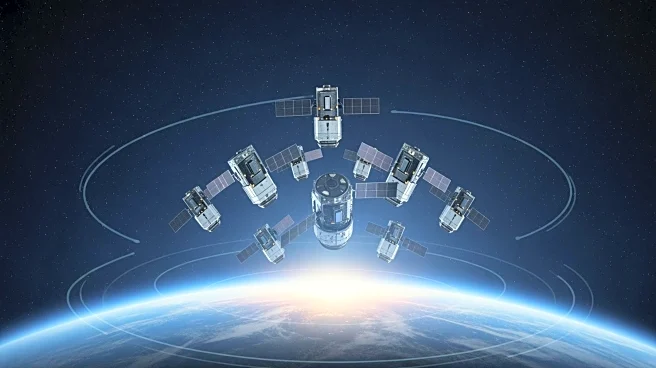What's Happening?
SpaceX's Starshield satellites, an encrypted version of the Starlink satellites, have been detected using radio frequencies reserved for uplinking data from Earth to space, according to Scott Tilley, an amateur
satellite tracker. These signals, which were traced to the Starshield constellation, violate International Telecommunications Union (ITU) regulations and could interfere with other satellites' ability to receive signals. Starshield, revealed by SpaceX in 2022, is designed for national security efforts and uses high-assurance cryptographic capabilities to host classified payloads. Despite the regulatory breach, SpaceX is unlikely to face consequences as the ITU does not impose fines for such violations.
Why It's Important?
The use of unauthorized frequencies by SpaceX's Starshield satellites highlights the company's tendency to push regulatory boundaries, potentially impacting other satellite operations. This development raises concerns about the security and integrity of satellite communications, especially for government agencies relying on these satellites for classified operations. The lack of penalties from the ITU may encourage further regulatory breaches, affecting the satellite industry's operational standards and international cooperation in space communications.
What's Next?
SpaceX may continue its operations without immediate repercussions, but the incident could prompt discussions among international regulatory bodies about enforcing stricter compliance measures. Government agencies using Starshield for national security purposes might reassess their reliance on SpaceX's services, considering potential risks of interference. The situation could lead to increased scrutiny of SpaceX's practices and influence future regulatory frameworks for satellite communications.
Beyond the Headlines
The incident underscores the ethical and legal challenges in the rapidly evolving space industry, where technological advancements often outpace regulatory measures. It raises questions about the balance between innovation and compliance, and the role of private companies in national security operations. Long-term, this could lead to a reevaluation of international space law and the responsibilities of commercial entities in maintaining secure and reliable satellite communications.









